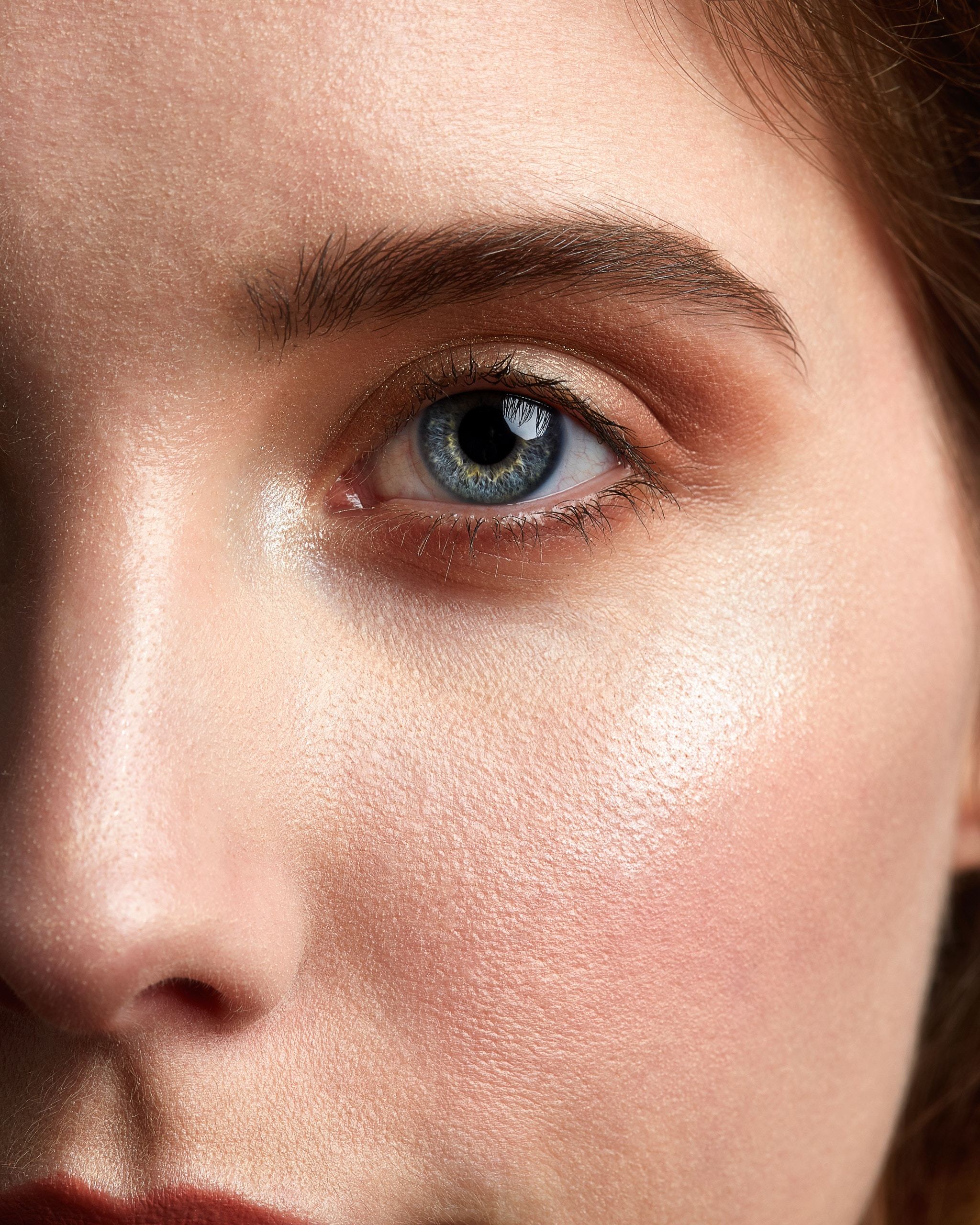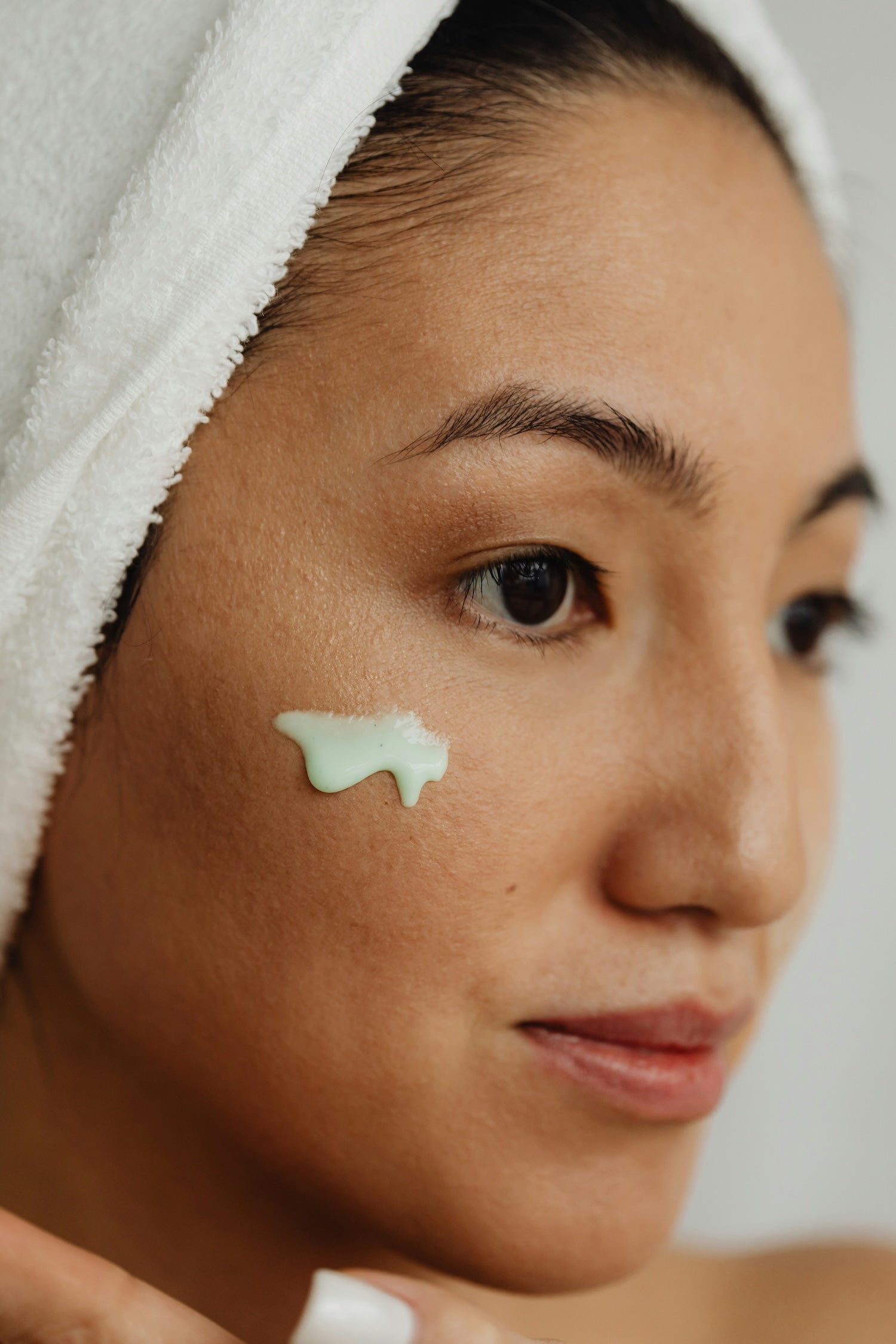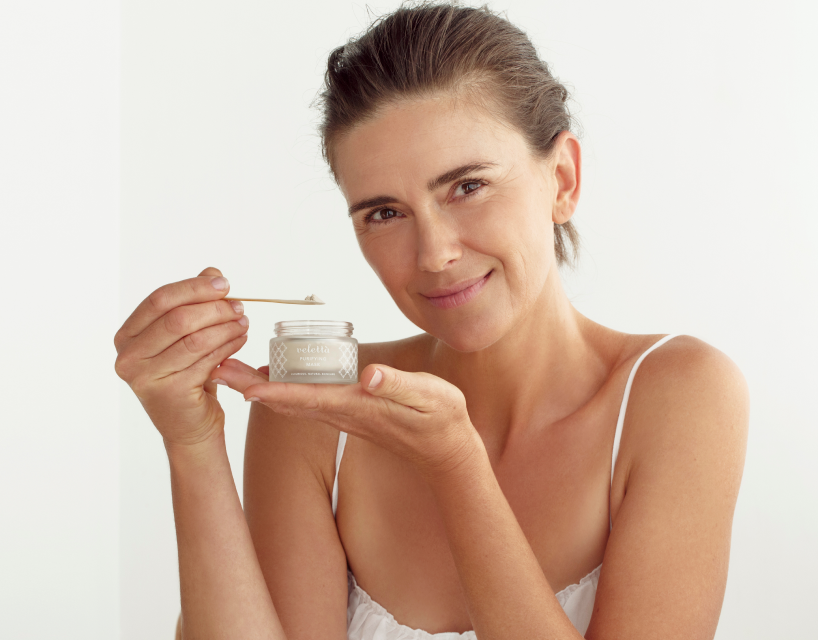What are hormones?
Hormones are secreted by the glands that make up the endocrine system like the hypothalamus, pituitary and thyroid.
Hormones are chemical messengers that transfer information and instructions from one set of cells to another. They control many different bodily functions, including growth, movement, sensory perception, metabolism, respiration, reproduction and sexual development.
Hormones and in particular, estrogen, testosterone, thyroid hormones and cortisol can affect the quality of our skin.
Estrogen
Estrogen is produced by the ovaries, fats cells and the adrenal glands. Estrogen affects skin thickness, wrinkle formation and maintains skin moisture by increasing hyaluronic acid in the skin. It also stimulates oil production, collagen and elastin. As women go through menopause their estrogen levels drop which means lower production of collagen and elastin which in turn, means thinner, less elastic skin which is more prone to wrinkling. Dropping estrogen can also adversely affect the skin barrier. Conversely, those with estrogen levels that are too high can experience melasma a condition which causes hyperpigmentation of the skin.
Testosterone
Testosterone is an androgen and like estrogen, androgens are secreted (in women) by both the ovaries and adrenal glands. Testosterone stimulates the sebaceous glands which are sebum-producing glands. Testosterones signals the increase in production of sebum during puberty which can lead to oiler skin and can result in acne. The primary cause of hormonal acne is the combination of dead skin cells and sebum in the pores which become blocked trapping more sebum. It is thought that estrogen may work to counter the effects of androgen on sebum production.
Thyroid
Hypothyroidism is an underactive thyroid where the thyroid gland doesn't produce enough of certain crucial hormones. It can prevent sweating and skin can become dry and flaky and nails can become brittle. In contrast, an overactive thyroid can cause warm, sweaty, and flushed skin. Both of these conditions can be serious and if you are experiencing symptoms you need to see a doctor.
Cortisol
As noted in our blog how stress affects your skin, stress can trigger or aggravate skin conditions, from eczema, alopecia, psoriasis and rosacea. This is because when under stress the body prompts your adrenal glands to release a surge of hormones, including adrenaline and cortisol (known as the stress hormone). High cortisol levels cause the skin's sebaceous glands to produce more sebum, which can clog pores and cause acne and can also cause inflammation and set off a range of skin conditions.
What can you do?
It is claimed that eating a balanced diet rich in leafy greens and healthy fats, avoiding excess sugar and exercising regularly will help balance hormones and in turn, help to achieve more balance in the skin. It is also important to consider what your skin needs: if you have hormonal acne consider changing to a facial oil like Velettà’s Rejunveating Oil as facial oils help regulate sebum production. Also, make sure you cleanse well using good cleansing oil and a cloth with anti-bacterial qualities like our luxury face cloths. Similarly, if you have dry skin because of a drop in estrogen ditch foaming cleansers and give your skin more nourishment by layering a facial oil with our Nourishing Moisturiser while exfoliating more regularly using a nutrient-rich mask like our Purifying Mask.




